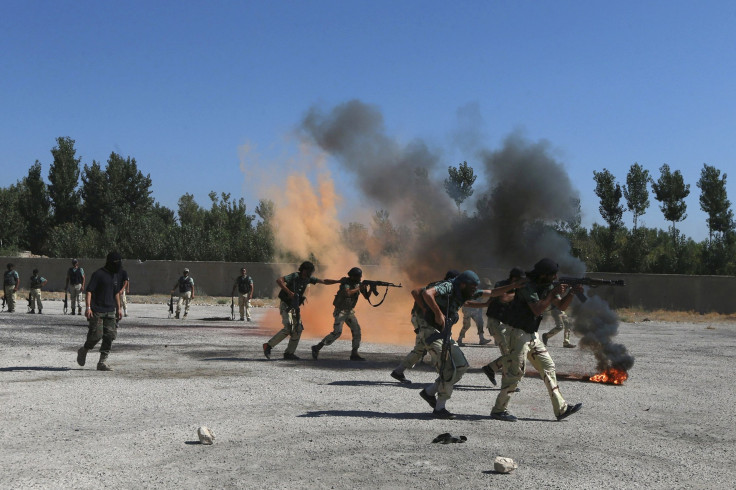Free Syrian Army Rebel Groups Kidnap Assad's Afghan Recruits In Northern Syria

Rebels fighting under the umbrella of the Free Syrian Army in the northern part of the country have begun kidnapping President Bashar Assad's Shiite military recruits from Afghanistan, rebels from Aleppo, said. Assad has deferred to Iran to help the Syrian regime in its recruitment of Afghan fighters to assist the military on the ground in key battles.
The Syrian Observatory for Human Rights confirmed last week Assad has been using Afghan fighters on the ground in Syria for months. But now, the Afghan recruits are being targeted by the rebels. Last week in Aleppo, dozens of regime fighters were killed, the majority of them Afghans. And in that same set of battles, several were kidnapped.
Afghan fighters first started showing up in Syria in the fall of 2013. In May, local media reported Iran's Revolutionary Guard Corps was recruiting Afghan Shiite refugees to fight in Syria and promised them $500 a month.
"Tehran has a track record of exploiting Shiite populations that it can directly influence due to its geostrategic, religious and historical position," Phillip Smyth from the Washington Institute on Near East Policy said in his June report. "Given the long-term population of Afghans in Iran, Tehran may view the war as an opportunity to extend its influence over disparate Shiite elements and push its leadership agenda."
Although Afghan fighters from Iran have propped up the Assad regime on the ground for perhaps years, their disappearance in the north is a new development. It is not yet clear how many of the Afghan fighters have been taken hostage. Their kidnapping also raises questions about the rebels' motives.
The Free Syrian Army has been kidnapping Assad soldiers and rebels from other opposition factions since the start of the war. But the kidnapping increased drastically in the summer of 2012 with the development of more extremist groups in Syria. The moderate rebels needed more money and weapons to keep up, so they turned to kidnapping for ransom.
The kidnapping by the rebels in the north could indicate they are once again in the same position they were in the summer of 2012 during the first battle for Aleppo. A new battle for Aleppo, what would be the third, is set to begin, but now the rebels will have to fight even harder to win. They will have to fight off the Islamic State group, Assad forces and al-Nusra, the al Qaeda offshoot in the country.
U.S. senior officials have recognized publicly the rebels in the north are failing and need more support. Secretary of State John Kerry said earlier this month the U.S. was engaging in new efforts to save the Syrian moderate rebels in the northern part of the country from total defeat. Those rebels, he said, "did not fare well in their battles and one or two of them folded into al-Nusra, which is disturbing." The rebels are, according to Republican Sen. John McCain, "on the verge of collapse."
© Copyright IBTimes 2024. All rights reserved.











